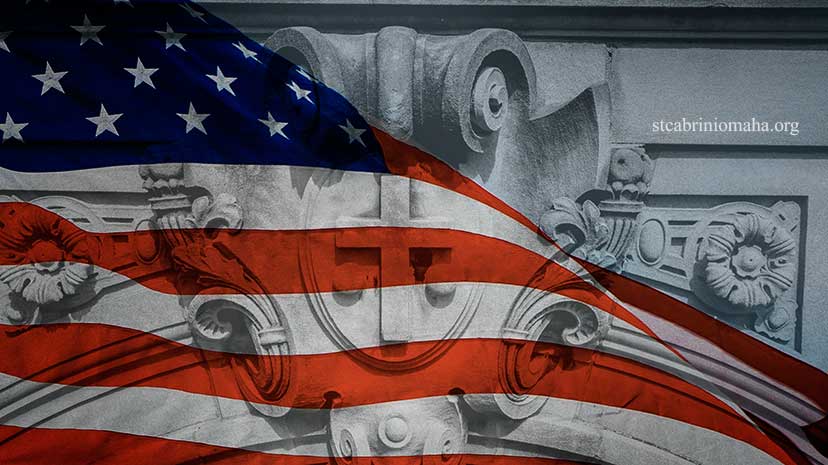Dear Friends,
I have had the pleasure of doing two sabbaticals during my priesthood. The first was for six months in Leuven, Belgium and the second was for three months in Israel. In both cases, there were students in the program from many different countries. We had Europeans, but also students from Africa, Australia, and Asia. We had great conversations about the differing views of the world, the nation-state and the church.
As we celebrate our nation’s independence this weekend, one of those conversations comes to mind. A young African priest reflecting on his experience of traveling in the US said, “You Americans surely do love your pilgrims. And Americans always think that God is on your side.” I agreed with him that all the references to Plymouth Rock can be baffling, since the arrival of Catholic Spaniards predated the protestant pilgrims by more than a century. The Mayflower landed in 1620, by that date Catholic missionaries in Florida had established over 100 missions and converted 26,000 native peoples. Franciscan missionaries opened the first seminary in St. Augustine, Florida in 1605. However, history is written by the victors and when England defeated Spain, the memory of the work of Catholic missionaries in the southern part of the US almost disappeared.
The young African priest went on to mention that the pilgrims themselves were not particularly enamored of the idea of religious liberty or democratic principles for which they are praised in our patriotic songs. He thought it odd that we honored them. His observation points out not just our selective historical memory, but our truly unsettling mix of patriotism and religion. America in many of our patriotic songs sounds a great deal like God’s chosen people, and God sounds quite a bit like a national deity whose divine plan is synonymous with U.S. global dominance.
If you hear patriotic songs this weekend, listen carefully to the words. What do they make of God and our country? “Long may our land be bright/ With freedom’s holy light/ Protect us by Thy might/ Great God our King,” or “O beautiful for patriot dream/ that sees beyond the years/ Thine alabaster cities gleam/ Undimmed by human tears!/ America! America! God shed His grace on thee,” or “In the beauty of the lilies Christ was born across the sea/ with a glory in His bosom that transfigures you and me/ As He died to make men holy, let us die to make men free/ While God is marching on.” Can you hear the blending of the two?
In a certain sense, the United States has had its own theology of redemption. Many people abandoned the Christian belief that we live in a fallen world and adopted the idea that we live, not in a fallen world, but in an imperfect society. You often hear political commentators saying that our imperfections are largely explained by our participation in one or more systems and that the work of perfecting society is mainly about creating a better system than the one we have. When we give up the Christian theology that says we need a savior to one that says we simply need to change the way we are doing things, then our human experiment in democracy takes on more than a human role. There is then a public agreement, that the nation-state has a pseudo-messianic role to play, either in effecting a more perfect society or in creating a better world order. This is true of both political parties. God is lost and replaced by human systems.
I think one of the reasons for people’s frustrations with present political systems is that we expect too much from them. We blame them for all our problems. We want the election of a person to change everything. We no longer look to our God to save us and for the answer; we look to the government to do it all. This is something it simply cannot do.
On this Fourth of July weekend, let us pray to God for our country. For only God can set us free and only God can make us whole.
Peace,
Fr. Damian



